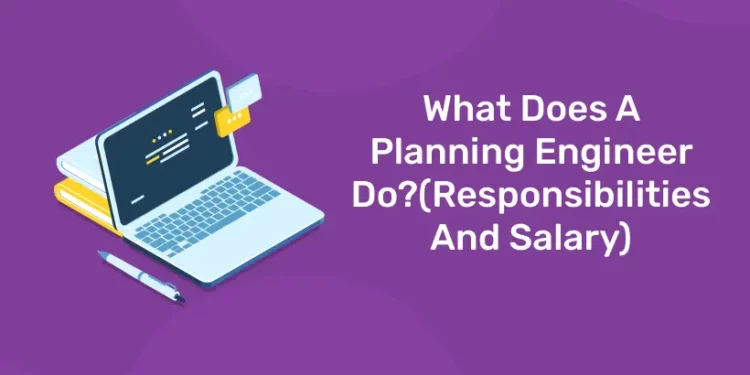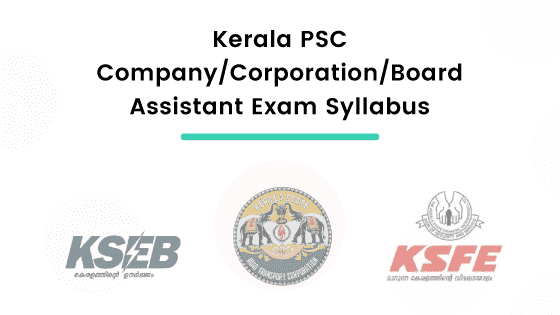Table of Contents
The present world is always busy. So, it is essential to have effective as well as efficient planning to be more productive in a short amount of time. A planning engineer’s work is the same. If you are a person who has good planning and management skills along with technical expertise, this is an apt career option for you. You have to know about the educational qualifications, skills, and experience required to become a planning engineer before starting your journey to become one. Another important thing to have some idea about is the job profile and possible salary of a planning engineer. This page will help you understand what a planning engineer does, responsibilities and salary, and many other important information about this career.
Who is a Planning Engineer?
A planning engineer is an expert in the design and development of a project plan. They are the ones who prepare the schedules, and budget and also manage the use of available resources. They also have to complete the project at the correct time while staying within the budget constraints and adhering to quality regulations. In short, we can say that a planning engineer uses their technical knowledge, management skills and analytical thinking to plan the schedule and budget of a project. They have to work with other engineers, stakeholders, project managers and workers to create practical and efficient workflows, be prepared with contingency plans in case of trouble and find potential risks associated with the project.
What Does a Planning Engineer Do?
‘What Does a Planning Engineer Do?’ is not a simple question to answer. The role of a planning engineer is very important in sectors such as energy, construction and manufacturing. This is because they make the work go smoothly by assigning the correct schedule and planning for everything. Here everything like money, time and resources are effectively and efficiently managed. Efficient planning and execution is the key to the success of the competitiveness, success and profitability of any business firm. Quantity surveying is an important skill a planning engineer should have.
The job of the quantity surveyor is very similar to that of a planning engineer. A quantity surveyor estimates costs, makes the budget of the project, carries out cost analysis, manages contracts and ensures the timely completion of the project within the budget limits. They also have to make sure to collaborate with other professionals to ensure the standard of the project. So, taking a quantity surveyor course will of course be a huge help for you to develop the skills needed to become a planning engineer. Check out the latest Quantity Surveyor online course by the Entri app with expert mentors providing recorded and live classes, personal mentorship, live projects and wonderful placement assistance.
Enroll in the Quantity Surveyor Course to improve your skills as a planning engineer!
Responsibilities of A Planning Engineer
The question ‘What Does a Planning Engineer Do?’ was not fully answered in the above paragraph. To succeed in your career as a planning engineer you should have the skills listed below.
Project Planning and Scheduling
Create an effective and practical project plan. Decide the materials as well as the equipment that are going to be used, calculate how much it will cost, make sure that cost stays within the budget, and take estimations of required labour, both in terms of the money as well as the number of people. The overall budget and timeline of the project should be estimated and mentioned in the planning. Schedule each part of the project and contracts or workdays of the needed workforce accordingly.
Organize and Attend Meetings
Meet regularly with the clients, contractors, engineers and project managers to discuss about the workings of the project. This is to ensure that no one is left in the dark when comes to important information in the project. The communications should be effective and everyone should be kept updated about the latest developments or alterations made in the planning of the project. This will also bring any issues reported in front of all the major players and provide a chance for everyone to brainstorm together to find some solutions. This will also provide the workers a chance to express their opinions, suggest any changes or new ideas and report any complaints to a higher authority.
Checking the Feasibility of Projects
A planning engineer has to conduct studies to ensure the feasibility i.e. the success rate of the upcoming project. The risk-to-reward ratio should be considered before allotting resources, money and workers into a project. Projects that have minimum results should be discarded at the planning stage itself if you think the risks associated with it are not worth it. The input of resources into such projects is a waste.
Transportation Organization
It is essential to collect the resources from the suppliers if they don’t provide the delivery to the site option in their services. An efficient transport system should be arranged to collect and deliver the raw materials and equipment from their site of production (or renting) to the project site. You can also arrange company-sponsored commutes for the workers in the project. All of these will help to get the events of the project to be done within the planned time constraints. Everything will go according to the planned schedule and this will help in the better running of the firm.
Want to be a quantity surveyor? Join the classes today!
Drawing the Plan
Design software packs can be used to make drawings for your plans. Creation of blueprints and deciding on the final designs of the necessary components and equipment will help you to visualise the project and conduct the rest of the planning accordingly. This provides the clients with a better understanding of your plans and ensures their requirements are met. Showing and discussing the blueprint among the workers will create a better understanding of the overall project as well as their roles in it.
Getting the Information about the Project Site
Getting precise information regarding the project site in the planning stage itself will help you to choose the materials and equipment accordingly. It is also essential for planning the resource distribution. You can use satellite imaging or aerial photography to collect data on the site. Other kinds of tests should also be done depending on the nature of the project. For example, the soil type should be examined to make sure that it has good drainage and will not cause flooding and soil erosion thus affecting the communities living nearby. Other factors such as weather conditions there and distance from the collection site of the raw material should also be considered.
Discussions on the Effects of the Project
A project may have a positive, negative or neutral impact in a place where its location is decided. There should be a thorough understanding of the environmental, societal and financial impact it may create among the community members and the workers in the firm. There should be discussions regarding this conducted with everyone from shareholders and executives to workers in the firm as well as experts in the field and the community members. The community members should be made aware of any effect, be it positive or negative and if there are any solutions suggested by the experts and consultants, then relevant changes should be made in the project planning.
Register in the latest quantity surveyor course for learning and placement assistance!
Employee Safety Monitoring
The employees who are working on the project should be monitored regularly. Selecting the correct procedures and making sure that materials and equipment are safe should all be part of the project planning. If there are any risks involved at all make sure that all the workers follow the required safety regulations as strictly as possible. Appropriate gear required for safety should be provided to all who are part of on-site work in the project. All these measures will make sure that injuries or health complications will not happen.
Project Supervising
The smooth running of the project is the responsibility of the planning engineer and the project managers. Communication and management skills are essential for this. the entire project should be supervised by them. They should make sure that the workflow is smooth all the employees are working in the allotted teams and the safety and quality regulations are followed strictly. Each task should be delegated and communicated to the respective head of staff promptly. If there is any feedback to be given, it should also be communicated at the correct time.
Teamwork
Project management is not a single person’s responsibility. It’s teamwork in which several professionals in the firm have to do an effective and strategic collaboration. Staff head, site manager, engineers, project managers, surveyors and several other professionals should work hand in hand with the planning engineer for the efficiency in running the project.
Click here to register for the best quantity surveyor course of 2024!
Overcoming Obstacles
It’s quite natural to have obstacles or setbacks during the running of a project. A planning engineer should always be prepared with a backup plan for any possible problems that may come up during the project in the planning phase itself. If an unexpected issue happens then they should be able to adapt to the situation do fast damage control and bring the project back to its course. Critical thinking skills and problem-solving skills along with good technical knowledge and rapport with staff members are essential for this. they should be ready to face any issues and overcome them by fast thinking and uniting and leading others in the correct path.
Report Writing
A planning engineer had to prepare the technical reports according to the technical analysis they had done. Report preparation will help in the overall understanding. It is to make sure that all the budget and time constraints were met. It is also to make sure that all safety measures are taken and quality standards are met. If there has been any disparity in any of the above said factors that went unnoticed during the project then they will be found and reported to higher authorities during the report preparation phase.
If any particular trend or irregularities are noticed like this then they should be investigated. Report-making improves the decision-making and supervising of a planning engineer in the long run as they will make sure that the errors, they noticed during the report writing of the project will not be repeated in another project by preparing its planning with these problems in mind.
Inspection And Maintenance of Infrastructure
One of the duties of the planning engineer is to schedule and conduct periodic inspections of all the gears, tools and equipment that they are in their best condition. If anything is worn out, they need to be repaired or replaced according to the need. They have to ensure that the structural components are fit to perform their allotted functions even if they are of a different design from the planned one. The factors to check might include whether are they capable of supporting the weight and hence prevent failure or even collapsing, whether are there any corrosive activities that may have gone unnoticed, whether are there any leaks or similar problems that need to be rectified immediately etc.
Looking for quantity surveyor classes! Click here to attend the demo classes!
Meeting Contract Requirements
During the construction of something, a contract is made between a client and a contractor according to the demands made by the client. It is an agreement and hence the requests listed in it by the client should be met by the professional. A planning engineer is one of the people who have to work to ensure this. The result of the project should be on par with the outcome desired by the client. Good comprehension and execution of the contract requirements will increase customer satisfaction and trust. Thus, will create more positive review for your company in the market and brings more customers in your way.
Search for New Opportunities and Trends
A planning engineer should research the latest profitable opportunities in the market. This can be done by themselves, or they can set up a team to do so for them. They should also make sure that they stay up to date with all the latest technologies and innovations made in their sector. This will help them to have a better skill range and hence more ideas and solutions when it comes to planning and problem-solving.
Salary of a Planning Engineer
Various factors might influence the salary of a planning engineer. These include the location of employment, their education, experience and the industry in which they are employed. The person who can bring a higher value can negotiate a higher salary from the employer. The location is important because cities and metros have a higher demand for the skills a planning engineer can offer. Hence, they might earn there more than being in a small town. The sector of employment is important. For example, planning engineers working in the mining or petroleum industry will earn more than the ones construction industry. This is because of the highly specific skills they need to have. The average annual salary of a planning engineer in India according to internet sources is around Rs. 500000/-.
What Does a Planning Engineer Do FAQs
- What are the main skills required to become a planning engineer?
The skills needed to be a planning engineer are:
- Management skills
- Critical thinking
- Problem-solving skills
- Communication skills
- Quantity Surveying
- Technical expertise
- Quality management
- Organisational skills
- Risk management
- Resource allocation
- Analytical skills
- Configuration skills
- What is the salary of the planning engineer?
The average annual salary of a planning engineer in India is about Rs. 500000/-.
- Where can we learn the quantity surveying skills to become a planning engineer>
Entri app provides a comprehensive quantity surveying course along with live projects and placement assistance. Join today itself to improve your chances and employability. Learn how to do cost estimation, cost analysis and budgeting. Add another useful skill to your resume. Bring the changes that you wish for in your career without any delay.






















